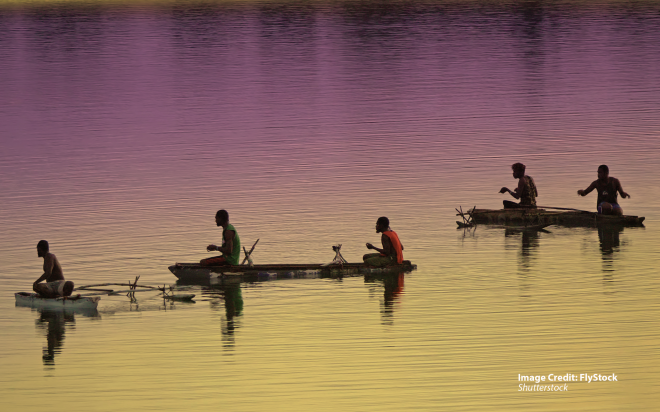Reading Japan’s Pacific PALM

On July 2nd, Japanese Prime Minister Yoshihide Suga hosted the Ninth Pacific Islands Leaders Meeting, also known as PALM. As with other major meetings taking place during a global pandemic, this year’s PALM was held virtually, with bilateral talks being held in the runup to the actual summit. The Japanese government is no stranger to the Pacific Islands region. In fact, already prior to formally launching its ambitious Free and Open Indo-Pacific (FOIP) strategy in 2017, Tokyo had been on track to becoming an influential player in the geopolitically contested region. In part, this is due to shared historical lineages dating back almost a century, but also draws on Tokyo’s broader post-cold war goal of nurturing support for its policies within various multinational institutions, including the United Nations Security Council. If nothing else, this year’s PALM demonstrated that the Suga administration is walking a tightrope between entertaining Washington’s geopolitical games and decoupling its foreign aid regime from it. Whereas Suga himself adamantly exercises restraint, his Deputy Defence Minister Yasuhide Nakayama lay bare growing frictions within Japan’s ruling party when he openly rebuked the ‘One China’ principle and referring to Taiwan as “a democratic country”.
Chop and Change
The flickering TV screen that Suga spoke to during the PALM summit served as a reminder that diplomacy in Covid-19 times is anything but business as usual. Despite travel restrictions, the Japanese government has been very much involved in supporting the Pacific Island countries (PICs) in their efforts to alleviate pressure on their fragile public health care systems caused by the novel coronavirus. Following months of supplying vital medical equipment, Tokyo teamed up with UNICEF to support the logistics of maintaining the vaccine cold chain under the “Last One Mile Support” scheme. Additionally, Suga pledged a total of three million vaccine doses by the end of 2021, further underscoring that combatting Covid-19 remains an urgent priority.
Despite being set against the backdrop of a global pandemic, PALM also provided Japan with an opportunity to flex its foreign policy muscles. Perhaps unsurprisingly, Tokyo decided to host the virtual summit during the same week as China set out to celebrate the Communist Party’s hundredth anniversary. Beijing’s growing regional and global assertiveness increasingly appears to worry Japanese policymakers. Even though Suga refrained from unequivocally naming China, he raised concerns about an upsurge in “competition with authoritarianism” and called for closer cooperation with the PICs to realize a “free and open Indo-Pacific region”. Fears about a shift in the balance of power in the Pacific have been magnified by the rollout of the Pacific branch of the Belt and Road Initiative (BRI), subsequent worries about risky loan diplomacy burdening PICs, and the recent diplomatic floor-crossing of Kiribati and the Solomon Islands. Both Papua New Guinea’s (PNG) Prime Minister James Marape and his Fijian counterpart Frank Bainimarama vowed to strengthen ties with Tokyo on “international matters” in one-on-one video calls with Suga.
Nevertheless, there now exists a concrete risk of valuing a stable Indo-Pacific above the PICs’ needs. A case in point is Suga’s strong desire to improve access for Japanese companies, among others, in the fishing and energy industries. In bilateral talks with PNG’s Marape, Suga is quoted to have “requested cooperation” in creating more business opportunities for Japanese energy providers in Papua’s Liquid Natural Gas (LNG) sector. Japanese companies have a long history as key investors in the Papuan LNG industry, with Japan accounting for roughly 5 percent of PNG’s energy exports. While seemingly profitable for both sides, PNG’s large LNG resources have long been a source of controversy. Perpetual political crises, widespread corruption, and negligence have long meant that Port Moresby could only look on as major foreign corporations exploited natural gas fields without proper oversight. Additionally, recent years have seen concerns voiced about the supposedly environmentally friendly alternative that LNG was once touted to be. In PNG, in particular, local communities have noted that their livelihoods are at risk due to the negative environmental impact of the gas extraction process but also that they were unable to benefit from the economic gains of these plants. Stepping up Japan’s engagement in this environment will thus require careful consideration of political intricacies, remaining committed to environmental goals, and ensuring that the Papuan side will equally benefit.
Swimming with Sharks
Faced with both intense domestic and international pressure, including the Olympic Games, containing the spread of Covid-19, and the looming Taiwan question, Tokyo could soon face a Pacific dilemma. Known to be a reputable development partner in the region with considerable leverage to push for net-positive change for the PICs, Japan will have to face a region in flux, with geopolitical objectives becoming ever hazier. Instead of pursuing only geopolitical gains, Tokyo would be well-advised to stay the course and continue to commit to quality rather than quantity. After all, Japan’s advocacy for Pacific fisheries has earned Tokyo much praise, whereby successfully branding its development aid to the region as “relational rather than material”.
It will be challenging to maintain this competitive edge now that the Pacific’s geopolitical theatre has to accommodate an ever-growing number of actors. In addition, plans to dump nuclear wastewater from the Fukushima Daiichi nuclear plant into the Pacific Ocean could tarnish Japan’s reputation even before geopolitical concerns may derail Tokyo’s usually positive track record. A mutually beneficial FOIP would prove particularly helpful given that the PICs have long lambasted traditional donor countries for their patronizing attitudes. Earlier this year, this very point of not listening to one another ultimately led to the splintering of the Pacific Islands Forum. This could set Japan apart from Australia and the U.S. whose Pacific Step-Up and Pacific Pledge respectively have been criticized for failing Pacific communities.